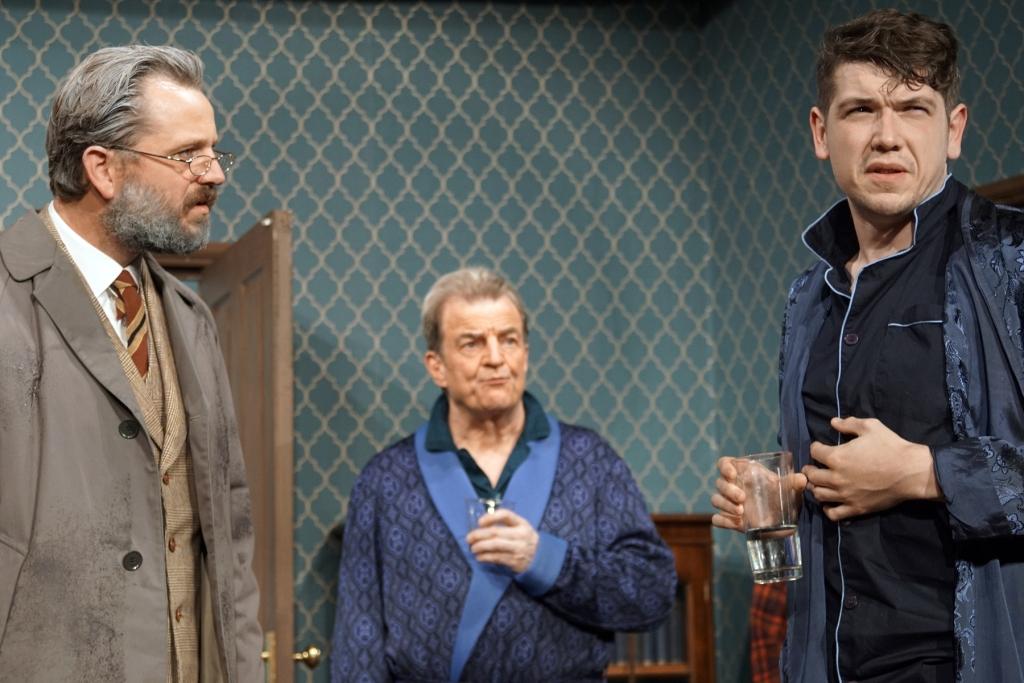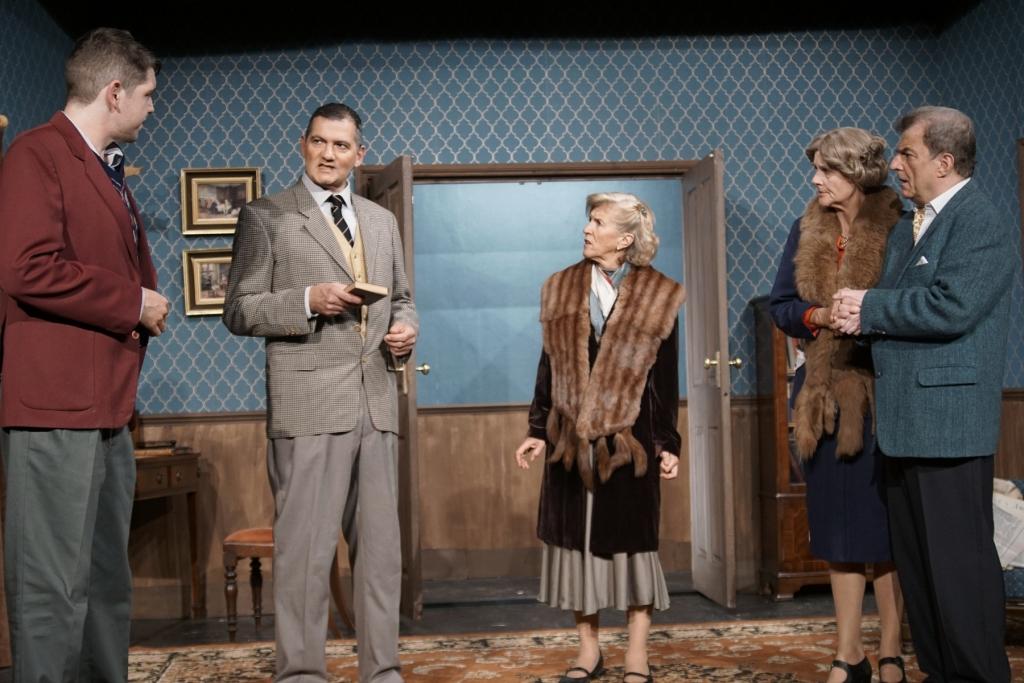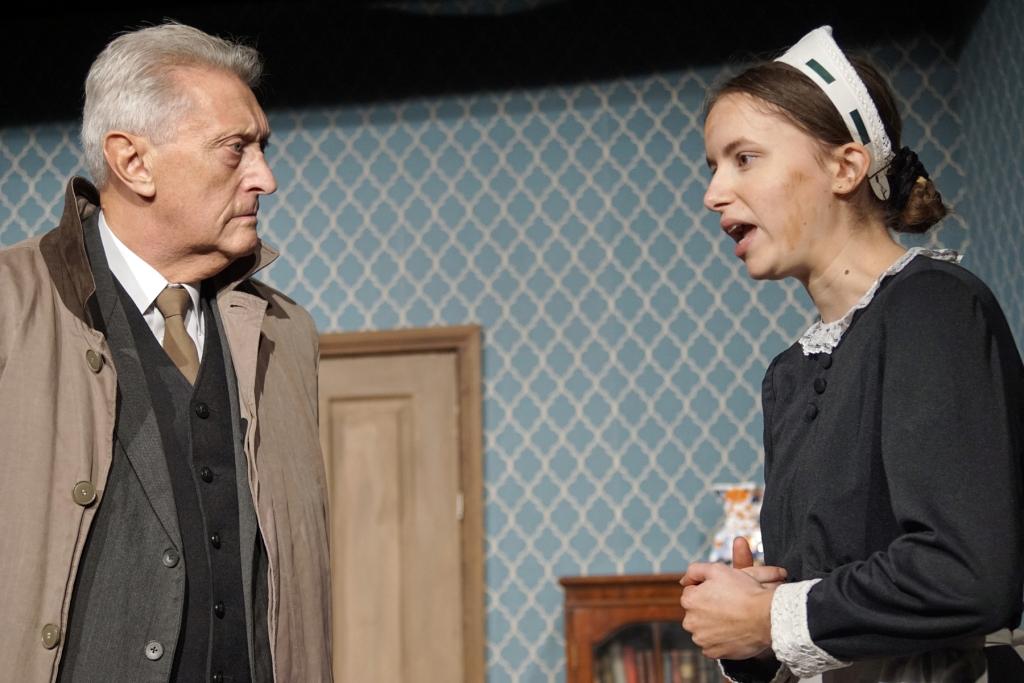|
|
||||||||||||||||||||||||||||||||||||||||||||||||||||||||||||||||||||||
Click
here for more pictures of this play
LADS - Bracken Moor |
||||||||||||||||||||||||||||||||||||||||||||||||||||||||||||||||||||||
|
||||||||||||||||||||||||||||||||||||||||||||||||||||||||||||||||||||||
|
Alexi Kay Campbell’s dark drama about the aftermath of a tragic accident is a very thought-provoking piece of theatre. The single set was well constructed and appeared in period although the curtain rail was too modern. LX plot included some dramatic effects. There was an angular shadow cast onto the back of the set by the teaser. When the doctor was recalling his experience with the healing woman, the lighting could have been brought down a little to intensify the atmosphere. The copious amount of stage smoke, accompanying Edgar’s appearance in the final scene made for a very atmospheric ending. . Costuming was excellent. Of particular note was the ladies’ day wear in the final scene. Both outfits were striking with Vanessa’s being a little more modern than Elizabeth’s, as one would expect. Terence’s hair style might have been the cause for some comment in the late 1930s but his black pyjamas would have been the height of fashion. Entrances and exits were well handled. Eileen walking through the hall, burdened with luggage, was an amusing touch. Terence’s dramatic appearances from behind the double doors very effective. Direction from Andrew Rogers kept a good pace. Groupings looked natural and sightlines were always clear. The opening duologue between Pritchard and Bailey looked slightly awkward with Pritchard, in particular, having little to do during some long speeches. Paul Arber gave a solid performance as John Bailey. A pleasingly halting delivery when presenting what the character must realise is a doomed proposal to the owner. His speech about the Shaw family did indeed paint a provocative picture. There was a noticeable change of his demeanour when talking to Eileen at the head of the second act. Howard Platt maintained an imperious air as Harold Pritchard. He appeared always in control in scenes with the Avery’s and looked every inch the mine owner. His unspoken reaction to Terence’s climactic scene with Elizabeth was masterfully done. His restrained breakdown towards the end of the piece was nicely judged. Jamie Mudle’s portrayal of Terence Avery was something of a tour de force. The character has a lot of dialogue including some lengthy monologues which he delivered with intelligent phrasing – always engaging with the audience. The part demanded much in the way of physical performance, and he used his considerable stage presence to good effect. A good change of voice when speaking Edgar’s words in scene two. The fussy and sensitive Vanessa Avery was a very credible portrayal by Karen Rogers. I liked the steel in her voice as she was remonstrating with an increasingly distracted Elizabeth. She was very well matched with Paul Stratton, who gave a quiet and thoughtful performance of Geoffrey Avery. A man who, one assumes is used to dealing with his well-meaning wife. A lot of his dialogue serves to lighten the dark mood of the drama and was performed with good timing. Elizabeth Pritchard, played by Jean Cooper, is the character that is most transformed by the end of the play – although it may be argued that the whole of the cast experience a change in outlook during the course of the narrative. Her opening scene, appearing frail and absent contrasted well with her appearance in the final scene, now more fully in control and beginning to rebuild her life. I liked her critical speech with Vanessa in the first scene and her heart-rending bewilderment at Terence’s trances. Very well played. Eileen’s scene with Bailey at the head of the second act mainly serves to inform the audience what has happened off-stage but it does give the character some impressive expository dialogue which Lisa Kirby performed with feeling and some charm. Dr Gibbons, whose compelling ghost story sets the scene for the Act I drop was a sound performance by Nick Charles. The programme was neatly laid out and easy to read with a lot of interesting information. Thank you for crediting NODA, it is appreciated. Please consider including the short “introduction to NODA” which is available from the website. This was a provocative and intriguing production which I greatly enjoyed. Many thanks for your invitation and your kind hospitality. I look forward to seeing future presentations by your society |
||||||||||||||||||||||||||||||||||||||||||||||||||||||||||||||||||||||




